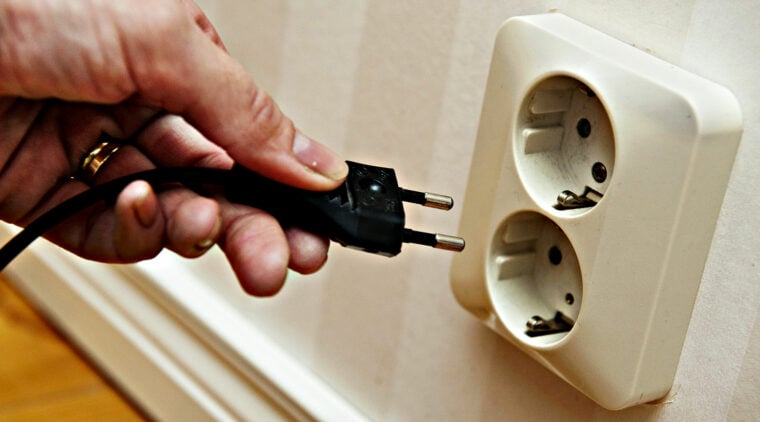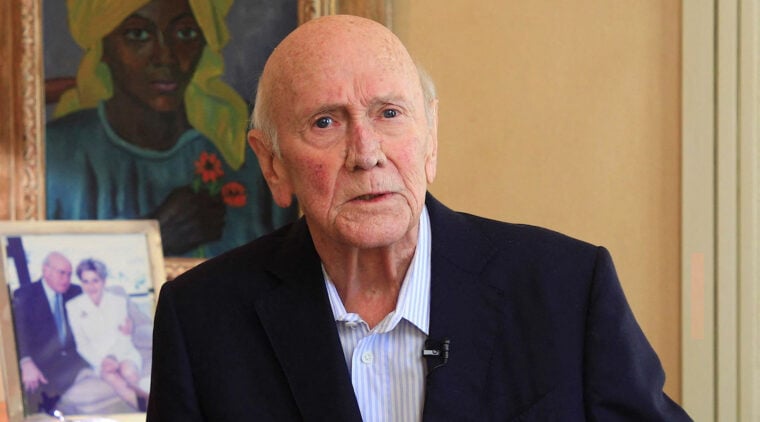Gästbloggare: Lane Hudson
När Fokus, Utrikespolitiska institutet och amerikanska ambassaden bjöd till USA-kväll var den demokratiske bloggaren Lane Hudson en av talarna. Här får Lane, som är känd för avslöjandet av kongressledamoten Mark Foley. Lägga ut texten om det som inte hanns med under seminariet.
Här får Lane, som är känd för avslöjandet av kongressledamoten Mark Foley. Lägga ut texten om det som inte hanns med under seminariet.
Unsubstatiated information on the Internet can generate enough heat to either confirm or debunk a story that mainstream media wouldn't touch because of lack of evidence. In Sweden there has been a debate about whether this is good or bad. What are people saying about this in the USA?
There is also some discussion about this issue in the US. Many people in positions of influence in the government or in large organizations have publicly stated a dislike of the blogs for this very reason. What they fail to realize is that the blogosphere is a living, breathing entity and it cannot be brushed aside.
When a bloggers post information, there are certainly varying degrees of reliability as to the veracity of that information. However, the blogosphere is very good at "self-policing" itself. When incorrect information is posted, it is usually found rather quickly by other bloggers and it is corrected.
Also, just as in main stream journalism, if a blogger becomes known for posting false or misleading information, that blogger will lose all credibility. Future posts by that blogger would largely be ignored.
At the seminar you spoke about the bloggers lack of argument. Can you elaborate? Will net activists change to be able to influence politics, or will politics change, if so, in what ways?
At the seminar, I referred to a book by New York Times Magazine writer, Matt Bai. The book is titled: "The Argument - Billionaires, Bloggers, and the Battle to Remake Democratic Politics". For Swedes who would like to learn about how American Democratic politics is very much in the midst of change, I would highly recommend the book. Bai's portrayal of the bloggers isn't entirely accurate, but it's pretty good.
In that book, he contends that the Progressive Movement in America lacks a clear 'argument' as to why voters should vote for our agenda. I believe he is right. What I think we are lacking is something relative to a party platform or programme.
Right now, much of the Progressive Movement in the US is organized around ending the War in Iraq. Some people believe that once the War is over, that there will be no cohesive issue around which Progressives can organize. This is the danger that we face if we don't come together to clearly define the values that we represent.
I am optimistic that this will be addressed. Those of us in the Progressive Movement believe the work that we do is very important to the future of America. For too long, the needs of the American people have been ignored. Our government is broken and doesn't serve the people who make America strong. That needs to change and we will not allow our Movement to fail.
Judging from the Internet buzz, Ron Paul would be the next president. But in polls he barely shows up. What are the reasons for this?
You've really stumped me on this question. I really don't know what is happening here. My only guess is that Ron Paul has captured the support of a very silent faction within the Republican Party that opposes President Bush's policy on the Iraq War. Ron Paul is the only Republican candidate that has criticized Bush on this issue. If this assumption is correct, then it could be a big warning sign for the Republican Party. If these people are willing to aggressively support an anti-war candidate in the Republican Primary who doesn't have a chance at winning, then they may cross party lines to vote for a Democrat who doesn't support the war.
You also gave some interesting exampels of the Internets ability to influence politics using mainstream media as a proxy. What are the trends in this area? More integration between old and new media? More spin directed to bloggers instead of old media? What else?
Increasingly, bloggers are appearing on television and radio shows to speak their opinion on topics in the news. Our perspective is new and fresh. The increased exposure to our progressive message will only increase the influence of the blogosphere. There are many Americans who still don't even know what a blog is.
Even many of the people who know what a blog is don't know where to start if they wanted to become a blog reader. This is largely because there are so many of them.
In my remarks, I mentioned that we will likely see a great deal of consolidation in the blogosphere, both horizontal and vertical. This movement will solve the problem I just mentioned by making it much simpler to go to one website to find the blog content that you want to find. By leveraging this to expand beyond the internet, it will further increase understanding of blogs and bloggers also.
Where the main stream media will go is still not clear to me. They have shown a willingness to engage with bloggers, but they have not yet fully embraced them.
 Här får Lane, som är känd för avslöjandet av kongressledamoten Mark Foley. Lägga ut texten om det som inte hanns med under seminariet.
Här får Lane, som är känd för avslöjandet av kongressledamoten Mark Foley. Lägga ut texten om det som inte hanns med under seminariet.
Unsubstatiated information on the Internet can generate enough heat to either confirm or debunk a story that mainstream media wouldn’t touch because of lack of evidence. In Sweden there has been a debate about whether this is good or bad. What are people saying about this in the USA?
There is also some discussion about this issue in the US. Many people in positions of influence in the government or in large organizations have publicly stated a dislike of the blogs for this very reason. What they fail to realize is that the blogosphere is a living, breathing entity and it cannot be brushed aside.
When a bloggers post information, there are certainly varying degrees of reliability as to the veracity of that information. However, the blogosphere is very good at ”self-policing” itself. When incorrect information is posted, it is usually found rather quickly by other bloggers and it is corrected.
Also, just as in main stream journalism, if a blogger becomes known for posting false or misleading information, that blogger will lose all credibility. Future posts by that blogger would largely be ignored.
At the seminar you spoke about the bloggers lack of argument. Can you elaborate? Will net activists change to be able to influence politics, or will politics change, if so, in what ways?
At the seminar, I referred to a book by New York Times Magazine writer, Matt Bai. The book is titled: ”The Argument – Billionaires, Bloggers, and the Battle to Remake Democratic Politics”. For Swedes who would like to learn about how American Democratic politics is very much in the midst of change, I would highly recommend the book. Bai’s portrayal of the bloggers isn’t entirely accurate, but it’s pretty good.
In that book, he contends that the Progressive Movement in America lacks a clear ’argument’ as to why voters should vote for our agenda. I believe he is right. What I think we are lacking is something relative to a party platform or programme.
Right now, much of the Progressive Movement in the US is organized around ending the War in Iraq. Some people believe that once the War is over, that there will be no cohesive issue around which Progressives can organize. This is the danger that we face if we don’t come together to clearly define the values that we represent.
I am optimistic that this will be addressed. Those of us in the Progressive Movement believe the work that we do is very important to the future of America. For too long, the needs of the American people have been ignored. Our government is broken and doesn’t serve the people who make America strong. That needs to change and we will not allow our Movement to fail.
Judging from the Internet buzz, Ron Paul would be the next president. But in polls he barely shows up. What are the reasons for this?
You’ve really stumped me on this question. I really don’t know what is happening here. My only guess is that Ron Paul has captured the support of a very silent faction within the Republican Party that opposes President Bush’s policy on the Iraq War. Ron Paul is the only Republican candidate that has criticized Bush on this issue. If this assumption is correct, then it could be a big warning sign for the Republican Party. If these people are willing to aggressively support an anti-war candidate in the Republican Primary who doesn’t have a chance at winning, then they may cross party lines to vote for a Democrat who doesn’t support the war.
You also gave some interesting exampels of the Internets ability to influence politics using mainstream media as a proxy. What are the trends in this area? More integration between old and new media? More spin directed to bloggers instead of old media? What else?
Increasingly, bloggers are appearing on television and radio shows to speak their opinion on topics in the news. Our perspective is new and fresh. The increased exposure to our progressive message will only increase the influence of the blogosphere. There are many Americans who still don’t even know what a blog is.
Even many of the people who know what a blog is don’t know where to start if they wanted to become a blog reader. This is largely because there are so many of them.
In my remarks, I mentioned that we will likely see a great deal of consolidation in the blogosphere, both horizontal and vertical. This movement will solve the problem I just mentioned by making it much simpler to go to one website to find the blog content that you want to find. By leveraging this to expand beyond the internet, it will further increase understanding of blogs and bloggers also.
Where the main stream media will go is still not clear to me. They have shown a willingness to engage with bloggers, but they have not yet fully embraced them.










